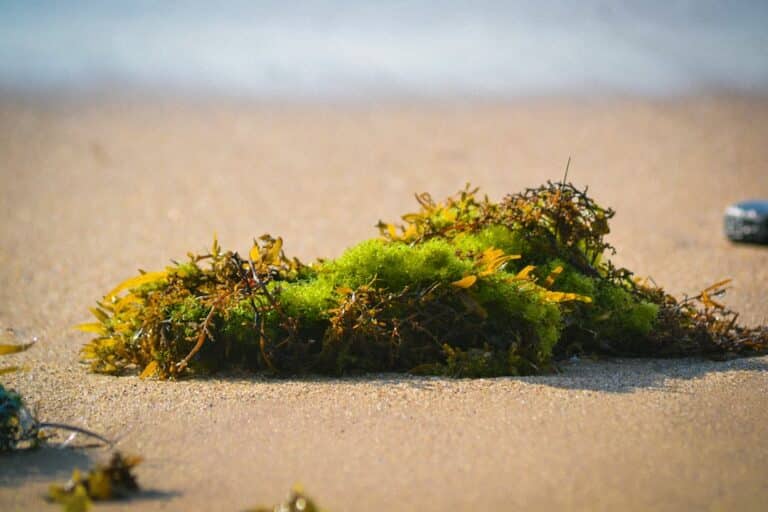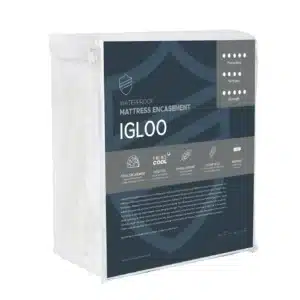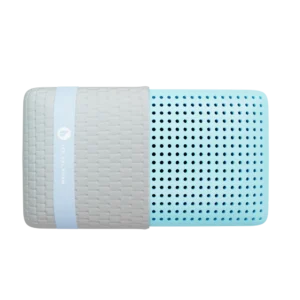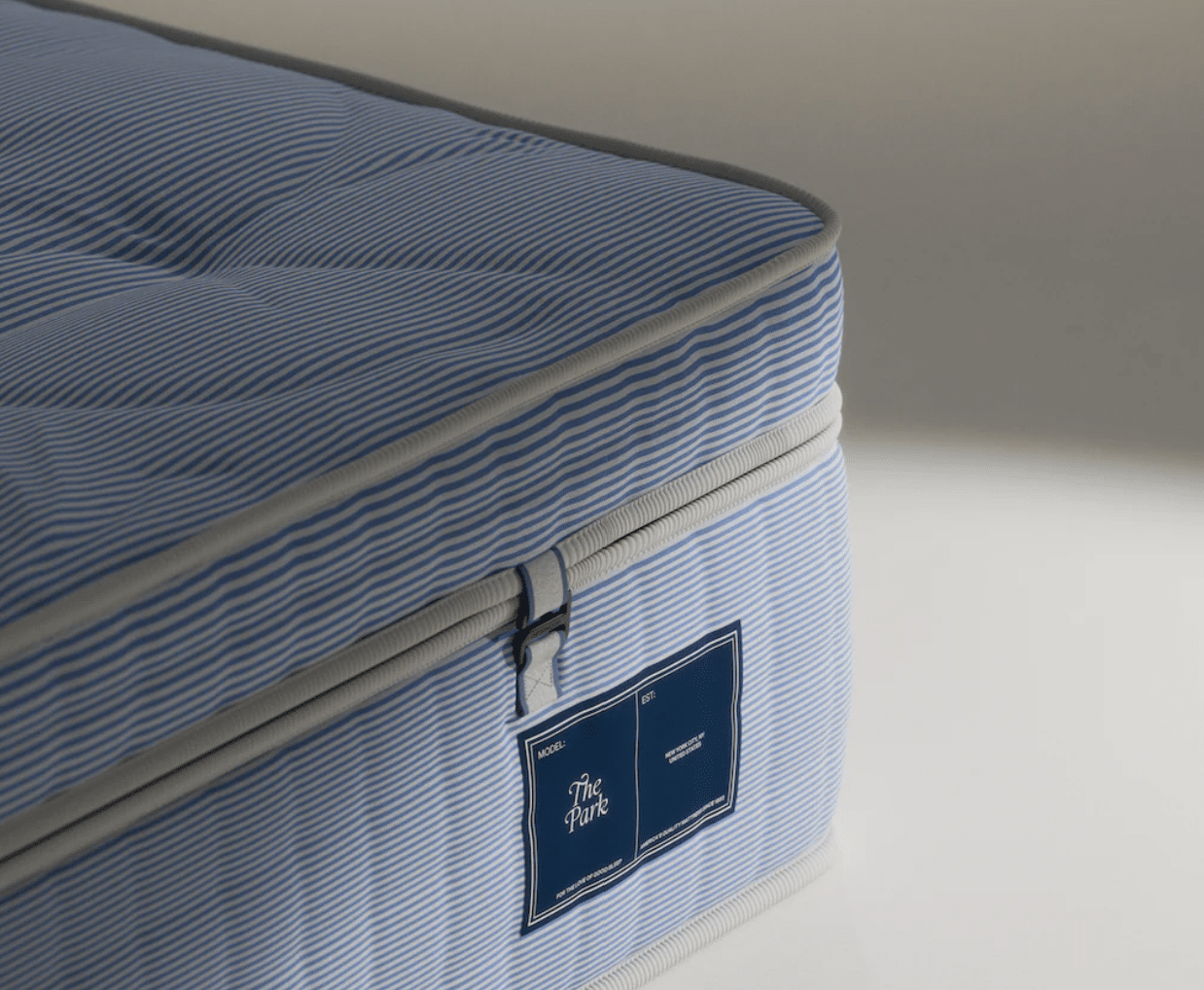The Complete Guide to Sea Moss: Can It Help You Sleep Better?
Can Sea Moss Improve Your Sleep Quality?
Integrating sea moss into your diet may significantly enhance your sleep quality. This natural remedy is gaining widespread attention for its potential benefits towards sleep health, making it an appealing choice for those who struggle to get a good night’s rest.
How Sea Moss Contributes to Better Sleep
Sea moss is a powerhouse of essential nutrients that may support restful sleep in various ways:
1. Stress Reduction: Rich in magnesium, sea moss can help calm your nervous system and alleviate anxiety, contributing to a more peaceful state of mind before bedtime.
2. Mineral Support: Sea moss contains potassium and calcium, both of which relax muscles and facilitate deeper, more restful sleep.
3. Hormonal Balance: Compounds within sea moss may help regulate sleep-related hormones such as melatonin, assisting in the natural sleep cycle.
If you often find yourself tossing and turning, searching for that elusive deep sleep, sea moss may be the solution you’ve been seeking. With its dense nutrient profile and a heritage of traditional use, this sea vegetable is becoming increasingly popular as a natural sleep remedy. My journey into understanding how sea moss can help you sleep better began when I experienced severe sleep deprivation that compromised my health. This led me to explore various sleep aids, culminating in the creation of Yawnder, where I share insights about enhancing sleep quality through natural methods like sea moss.
What Exactly is Sea Moss?
Sea moss, scientifically known as Chondrus crispus, is a type of red algae or seaweed celebrated for its extensive health benefits. This spiny sea vegetable boasts a wealth of essential nutrients.
Nutritional Profile of Sea Moss
– Iodine: A vital mineral for thyroid function, iodine helps your body generate hormones that regulate metabolism and energy levels.
– Calcium: Essential for strong bones and teeth, calcium also plays a significant role in muscle function and nerve signaling.
– Magnesium: Renowned for its calming effects, magnesium aids in relaxing muscles and nerves, playing a critical role in sleep regulation.
According to Alexander Aponte-Davila, a doctor of naturopathic medicine, sea moss stands out as a top choice for individuals seeking to elevate their health. Available in various forms—gel, capsules, or powder—it’s easy to incorporate into your daily routine. For a simple yet nutritious option, consider blending 1-2 tablespoons of sea moss gel into your morning smoothie. Alternatively, capsules offer hassle-free consumption, and powder can seamlessly mix into soups, stews, or shakes.
Let’s dive deeper into how sea moss specifically supports sleep health.
Sea Moss: A Natural Sleep Aid
Sea moss isn’t just nutritious; it may also provide a natural route to improving sleep quality and comfort. Here’s how its mineral composition and compounds work in synergy for better slumber:
The Role of Magnesium
Magnesium plays a crucial role in fostering relaxation and reducing stress. As an essential mineral for nervous system function, adequate magnesium levels can ease tension and prepare your body for restorative sleep. With sea moss’s high magnesium content, it stands as an ally for those who face sleep challenges.
Tryptophan and Sleep
Another key component of sea moss is tryptophan, an amino acid that your body utilizes to produce serotonin, a neurotransmitter vital for mood and sleep regulation. Higher serotonin levels often equate to improved sleep quality. By including sea moss in your diet, you could potentially bolster your body’s serotonin production, leading to more restorative nights.
The relationship between tryptophan and serotonin is essential because serotonin helps regulate your sleep-wake cycle. Balanced serotonin levels enable you to fall asleep more easily and stay asleep longer.
Incorporating sea moss into your diet could offer a natural pathway to enhanced sleep quality by combining magnesium and tryptophan to stimulate the production of sleep-regulating neurotransmitters.
Additional Health Benefits of Sea Moss
Sea moss extends beyond its sleep-boosting capabilities and serves as a multi-faceted health enhancer. Here’s a closer look at some benefits you can enjoy:
1. Immune Support: Sea moss is rich in iron and antioxidants, vital for bolstering your immune system and warding off illness.
2. Digestive Health: Thanks to its high fiber content, sea moss promotes gut health by supporting beneficial bacteria and regular bowel movements, thereby alleviating bloating and discomfort.
3. Skin Nourishment: Packed with vitamins and minerals, sea moss may enhance skin health, reducing redness and irritation while hydrating for a radiant complexion.
4. Thyroid Function: As a natural iodine source, sea moss supports thyroid health, assisting in the production of metabolism-regulating hormones.
5. Bone Strength: The calcium and magnesium in sea moss contribute to strong bones, potentially lowering the risk of osteoporosis.
Including sea moss in your regimen could yield numerous health benefits, enriching your overall well-being along with your sleep quality.
Simple Ways to Incorporate Sea Moss into Your Diet
Adding sea moss into your daily life is simple and effective. Whether you opt for gel, capsules, or powder form, you can easily enjoy its nutritional benefits:
– Sea Moss Gel: A versatile ingredient, sea moss gel can be blended into smoothies or incorporated into soups for extra nutrition without altering flavor.
– Capsules: Ideal for those on-the-go, sea moss capsules provide an effortless way to ensure you’re getting your daily intake.
– Powder: Sprinkle sea moss powder on meals, mix it into drinks, or even bake it into breads and muffins for a healthy boost.
Potential Side Effects and Precautions
While sea moss has countless benefits, it’s vital to be aware of potential side effects:
1. Thyroid Concerns: With its high iodine content, individuals with thyroid conditions should consult a healthcare provider before incorporating sea moss into their diet.
2. Digestive Issues: Some may experience digestive discomfort when first using sea moss, particularly bloating or gas. Begin with small amounts and increase gradually.
3. Allergic Reactions: As with any supplement, allergic reactions are possible. If you have known sensitivities to seaweed, it’s best to avoid sea moss.
By being mindful of these factors, you can safely enjoy the myriad benefits of sea moss.
Frequently Asked Questions about Sea Moss and Sleep
Does sea moss make you sleepy?
Sea moss can promote relaxation due to its magnesium content, which helps produce calming neurotransmitters. It’s not a sedative, so it’s unlikely to induce drowsiness during the day.
Is it good to take sea moss at night?
Many find that taking sea moss in the evening helps them unwind, making it easier to drift off to sleep. However, its benefits can be enjoyed at any time of day.
When should you avoid sea moss?
Individuals with thyroid issues or allergies to seaweed should consult healthcare providers before using sea moss to ensure safety.
Conclusion
Incorporating sea moss into your diet may be an effective way to enhance your overall health and improve your sleep quality. At Yawnder, we recognize the vital role sleep plays in your well-being, and understand how natural supplements like sea moss can be part of the solution.
While sea moss is packed with benefits, including its calming effects and rich nutrient profile, it’s important to use it responsibly. Pairing sea moss with a balanced diet and consulting a healthcare professional can help you maximize its potential benefits while keeping your health at the forefront.
In summary, sea moss could be a valuable addition to your wellness toolkit in your journey towards better sleep. By blending its benefits with a nutritious diet and appropriate medical advice, you can unlock the restful nights you deserve. At Yawnder, we’re committed to supporting you in achieving optimal sleep quality for a healthier, happier life.



















